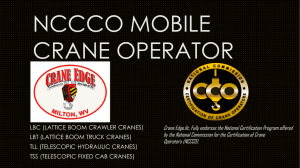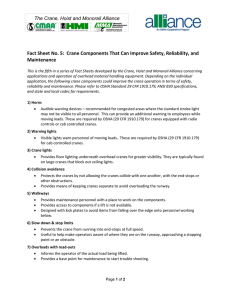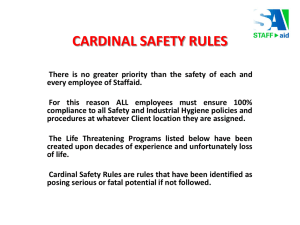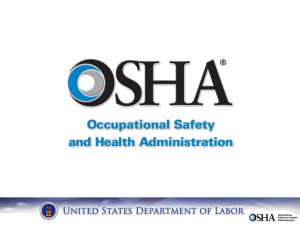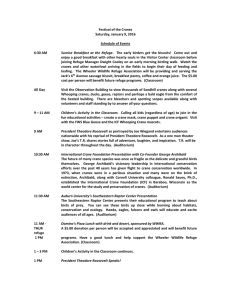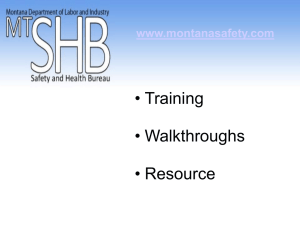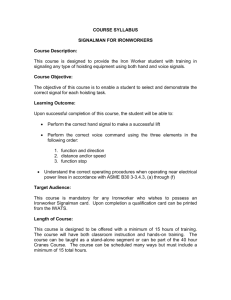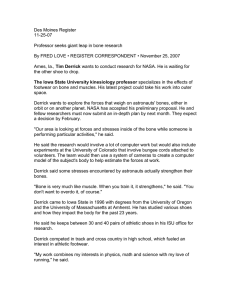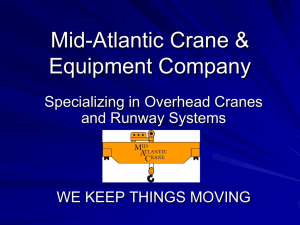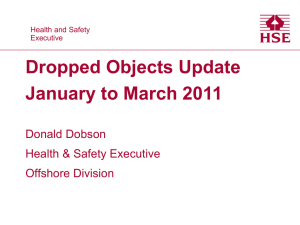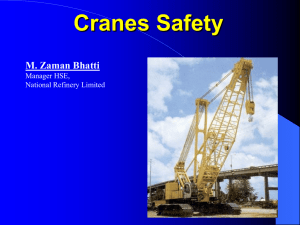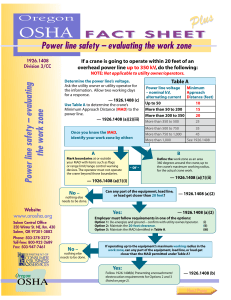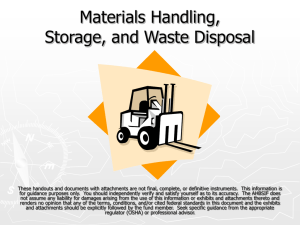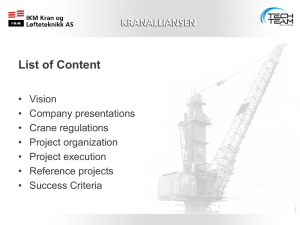OSHA Activity for the Oklahoma City Area Office Presented by Jim
advertisement
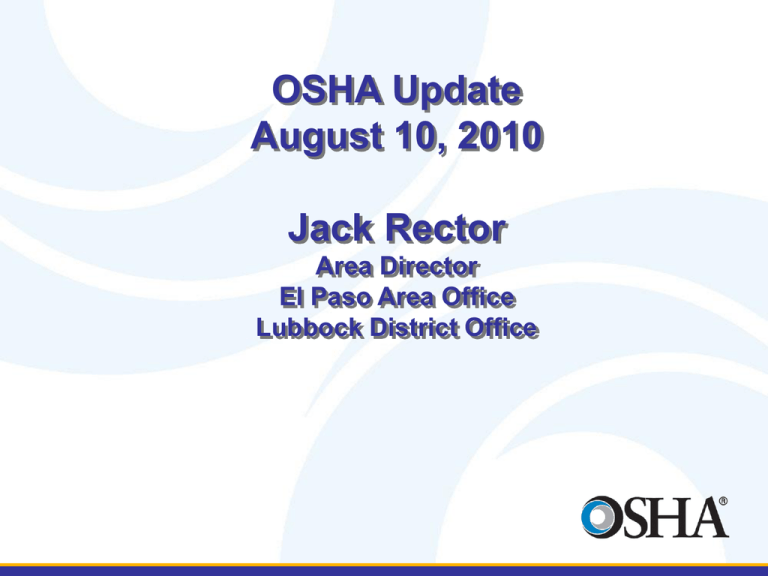
OSHA Update August 10, 2010 Jack Rector Area Director El Paso Area Office Lubbock District Office Topics to be covered • Fatalities/Catastrophes/Accidents • New crane and derrick standard OSHA news release on 28 July, 2010 Fatality information (FY 2010) • Sixteen (16) work related fatality inspections conducted this fiscal year in the El Paso Area Office Jurisdiction • Twelve (12) were related to oil and gas drilling, servicing, or transporting – 75% of fatality inspections from Oil and Gas or related industry Fatalities/Catastrophes • No fatalities reported this month • No catastrophes reported this month • No accidents reported this month Crane and Derrick Standard • The final rule for Cranes and Derricks in Construction (29 CFR 1926 Subpart CC .1400-.1442 and Appendices A-C) was filed with the Federal Register at: http://www.ofr.gov/OFRUpload/OFRData/2 010-17818_PI.pdf • The regulation text is available at: http://www.osha.gov/cranesderricks/index.html Crane and Derrick Standard • The final rule will be formally published in the FR on August 9th with an effective date of November 8, 2010 • Certain provisions have effective dates ranging from 1 to 4 years Crane and Derrick Standard • This new standard will comprehensively address key hazards related to cranes and derricks on construction worksites, including the four main causes of worker death and injury: electrocution, crushed by parts of the equipment, struck-by the equipment/load, and falls. Crane and Derrick Standard • Expected to prevent 22 fatalities and 175 non-fatal injuries each year • Requires operators of most types of cranes to be qualified or certified within 4 years • Certification requirements are designed to work in conjunction with state and local laws Crane and Derrick Standard • Significant requirements include use of synthetic slings in accordance with the manufacturer’s instructions during assembly/disassembly work; assessment of ground conditions; qualification or certification of crane operators; and procedures for working in the vicinity of power lines. Heat Stress • Some methods of abating heat stress hazards in workplaces include, but are not limited to: – Permitting workers to drink water or cold liquids (e.g., sports drinks) at liberty; – Establishing provisions for a work/rest regimen so that exposure time to high temperatures and/or the work rate is decreased Heat Stress • Developing a heat stress program which incorporates the following: – A training program informing employees about the effects of heat stress, and how to recognize heat-related illness symptoms and prevent heat-induced illnesses; – A screening program to identify health conditions aggravated by elevated environmental temperatures; – An acclimation program for new employees or employees returning to work from absences of three or more days; – Specific procedures to be followed for heat-related emergency situations; and – Provisions that first aid be administered immediately to employees displaying symptoms of heat-related illness. OSHA El Paso Area Office/Lubbock District Office EP: 4849 North Mesa, Suite 200 El Paso, Texas 79912 Phone: (915)534-6251 LB: 1205 Texas Ave., Room 806 Lubbock, Texas 79401 Phone: (806)472-7681 www.osha.gov 1-800-321-OSHA
